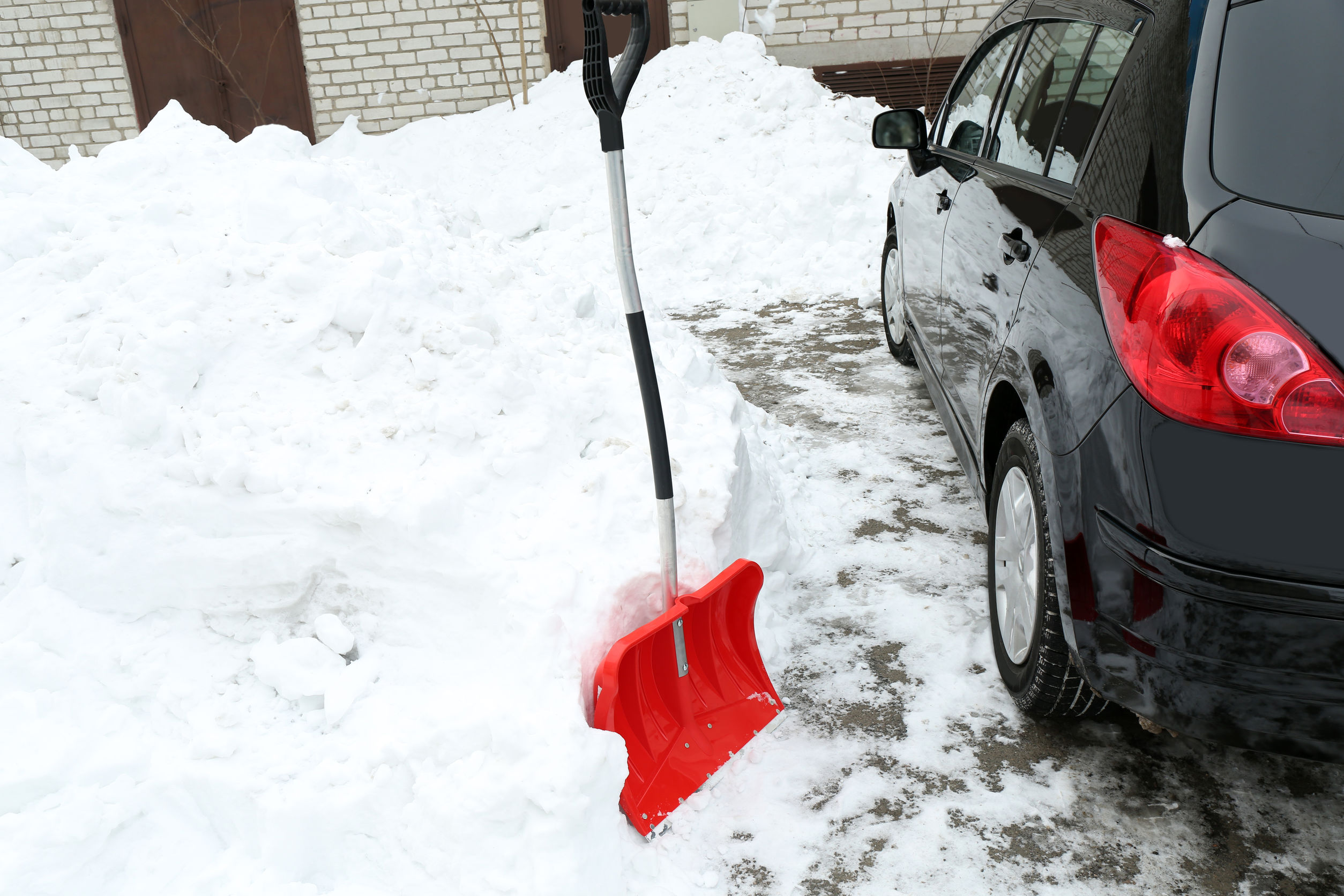
Plummeting temperatures will soon be upon us, and you need to take measures to protect the concrete driveway for your residential or commercial property. Here are a few solid tips on maintaining the structure of your driveway this winter season.
Respond to Stains As Quickly As Possible
We understand that a stain on your driveway isn’t the end of the world, but stains of grease, oil, gasoline, and other such liquids can be unsightly, and allowing them to linger can ruin the overall image of your company’s exterior. If you’re a homeowner, a stained driveway can negatively impact your home’s resale value and its visual aesthetic, too. Take care of spills and drips with a pressure washer, degreaser, or even dishwasher detergent and a quality brush.
Seal Your Driveway
To get as much use out of your concrete driveway as possible, look into sealing it. We recommend sealing your driveway every two years. However, you should consider the overall climate as well as how much you use your driveway to evaluate how often you should seal your driveway. If you want to enjoy the best results, have a professional take care of the sealing and resealing.
Refrain From Using De-icers on Your Driveway
Before you use de-icing chemicals to get rid of snow and ice on your driveway, know that they can damage concrete. Ammonium sulfate and ammonium nitrate are especially harmful because they eat their way into concrete. While you can use calcium chloride or rock salt as an alternative, there’s a chance you can accidentally harm nearby plants by doing so. Your best bet is to keep things simple and sprinkle sand so wheels have the proper traction required to move over the concrete.
Take It Easy
Concrete is a pretty durable material, which means it should be able to stand up to significant damage, right? The truth is you shouldn’t subject concrete to more damage or wear than absolutely necessary. This is especially true for fresher concrete. Large and heavy vehicles, like those used for moving or construction, can harm concrete driveways for residential properties.
The Good and Bad Sides of Salting Your Pavement This Winter
Temperatures have dropped, which means that another cold Upstate New York winter is here. When snow and ice start blowing in from Lake Ontario, it’s only a matter of time before roadways and parking lots become un-drivable, which is why many municipalities and business owners treat the asphalt with salt. If you’re responsible for the upkeep of a parking lot, you might be wondering if you should consider salting your pavement before the first flakes fall. Here’s a look at the bad and good sides of this technique so you can make an informed decision.
How Salt Works
Road salt is a compound known as halite, which is the unrefined form of the seasoning you have on your dinner table. When dissolved in water, it lowers the liquid’s freezing temperature, which means it needs to be much colder to create ice. By spraying a mixture of water and halite on pavement, you can prevent it from freezing over and creating dangerous conditions.
The Benefits of Salting
The application of rock salt is one of the most common anti-icing techniques used today, as it provides a number of distinct benefits:
- Road salt is extremely affordable when compared with other chemical agents.
- Halite does not cause asphalt deterioration or potholes.
- Salts can be laid down in a brine solution before the storm arrives, which allows workers to be proactive.
Drawbacks of Salt Application
While there are many benefits that come with salting, it’s important to understand that halite has its limitations and negative consequences:
- Unlike asphalt, concrete surfaces will deteriorate due to the salt’s acidity.
- Salt loses its effectiveness if the temperature is too cold or the surface freezes quickly, as it requires liquid water to work properly.
- Chemical runoff from road salt can have a negative impact on plants, animals, and underground aquifers.
- Prolonged exposure to halite can cause vehicles to rust prematurely.
Make the Right Choice
When it’s time to repair damages or completely repave your driveway or parking lot, turn to the experts at All County Construction.
For more tips on taking great care of your concrete driveway, don’t hesitate to reach out to us. We are also ready to accept requests for driveway sealing or paving for the warmer months.


